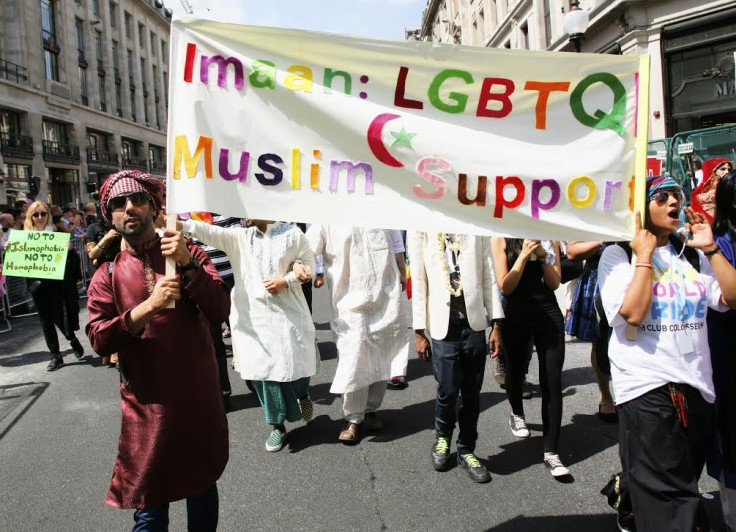Muslims are hypocrites and human, but not homogeneous - just like the rest of Britain

It's a Friday night. Earlier in the afternoon I attended Friday prayers at the mosque, but now it's party time. I am at Mirch Masala, my favourite curry house in Southall, with a mixture of my British Muslim friends, all having something to eat before we hit the town. There's about 10 of us, men and women, all of who identify as British and Muslim. In the safety of our friendship circle we talk about everything: sex, booze, make-up, talent shows, mosques and Nicki Minaj.
The reality is that the majority of British Muslims are British to the very core and enjoy the privileges that come with that identity. Most of us drink alcohol behind closed doors, most of us are tolerant towards LGBT communities in Britain and most of us are having sex in and outside of marriage. We are hypocrites and we are human – just like the rest of the country.
And yet Muslims feel under constant pressure to prove how British they really are.
Most of us drink alcohol behind closed doors, most of us are tolerant towards LGBT communities in Britain and most of us are having sex in and outside of marriage.
An ICM poll, conducted for Channel 4's forthcoming documentary What British Muslims Really Think, supposedly gives an insight into the hearts and minds of one of the communities I belong to in Britain. This in itself is hugely flawed in representing the broad spectrum of British Muslims. Firstly 1,000 Muslims are surveyed in order to represent the 2,706,066 Muslims living in Britain according to the 2001 census. That is approximately 0.04% of British Muslims in the UK.
The poll found that 52% disagreed that homosexuality should be legal in Britain, while 18% agreed. In contrast, the control sample of 1,008 people who were supposed to represent the general UK population found 5% were opposed to homosexuality. In addition, almost half of British Muslims in the poll said they did not agree that it was acceptable for a gay person to become a teacher, 39% agreed that "wives should always obey their husbands", and 4% said they sympathised with people who took part in suicide bombings.
Muslims feel under constant pressure to prove how British they really are
As a British Muslim, I am proud of the multi-faceted identity that I am free to practice in the UK. Yes I am a rare example of being gay, Muslim, genderfluid, of Pakistani heritage and British. However the majority of British Muslims pick and choose the best qualities of each identity and piece them together. This is essentially the ethos of being being British today; the freedom of choice and the right to exercise that freedom.
The mainstream media has always made the mistake of putting British Muslims into one box. British Muslims aren't homogeneous. Under the Muslim umbrella, we have the various sects Salafis, Shias, Sunnis, Hanafis, Ismailis; each with their own interpretations of Islam.
Mainstream media has always made the mistake of putting all British Muslims into one box. British Muslims aren't homogeneous.
The dynamics change further when you add the generation gaps in Britain. I am the second-generation of a British Pakistani immigrant family. Therefore my experiences of being British are obviously different to those of my parents, and those of my teenage nephew and nieces are even more distinct from mine.
Adding further to the confusion of being a British Muslim today are terms such as 'practising', 'non-practising', 'moderate' and 'Ex-Muslim'. How can a British Muslim be truly represented?
It feels easier to hide in silence, to let that negative image of Muslims as suicide bombers and sex groomers be equated to niqabs, hijabs and beards.
Fear of repercussions from the community aside, the main reason why there is a lack of British Muslim voices speaking out is because of the inherent pressures of being British Muslim today and how that is represented in the media. Muslims don't want to be labelled as jihadis or terrorists for defending a strong part of their identity and life. It feels easier to hide in silence, to let that negative image of Muslims as suicide bombers and sex groomers be equated to niqabs, hijabs and beards.
I cannot deny that there are growing gaps in the separation between British communities and Muslim communities in Britain – and this is very concerning. Even more so at a time when there should be continued efforts to unite against the threat of terrorism. But I strongly feel the ICM poll does not represent the British Muslims I see every day in Britain. And these negative perceptions will not change until British Muslims consistently speak out in a responsible way, and are given high-profile platforms and opportunities to do so.
Asifa Lahore is Britain's first out Muslim drag queen, pushing the boundaries of what it means to be gay and Muslim. A singer, DJ and activist, Lahore starred in Channel 4 groundbreaking documentary Muslim Drag Queens and received the LGBT award at the Attitude Magazine Pride Awards.
© Copyright IBTimes 2025. All rights reserved.




















